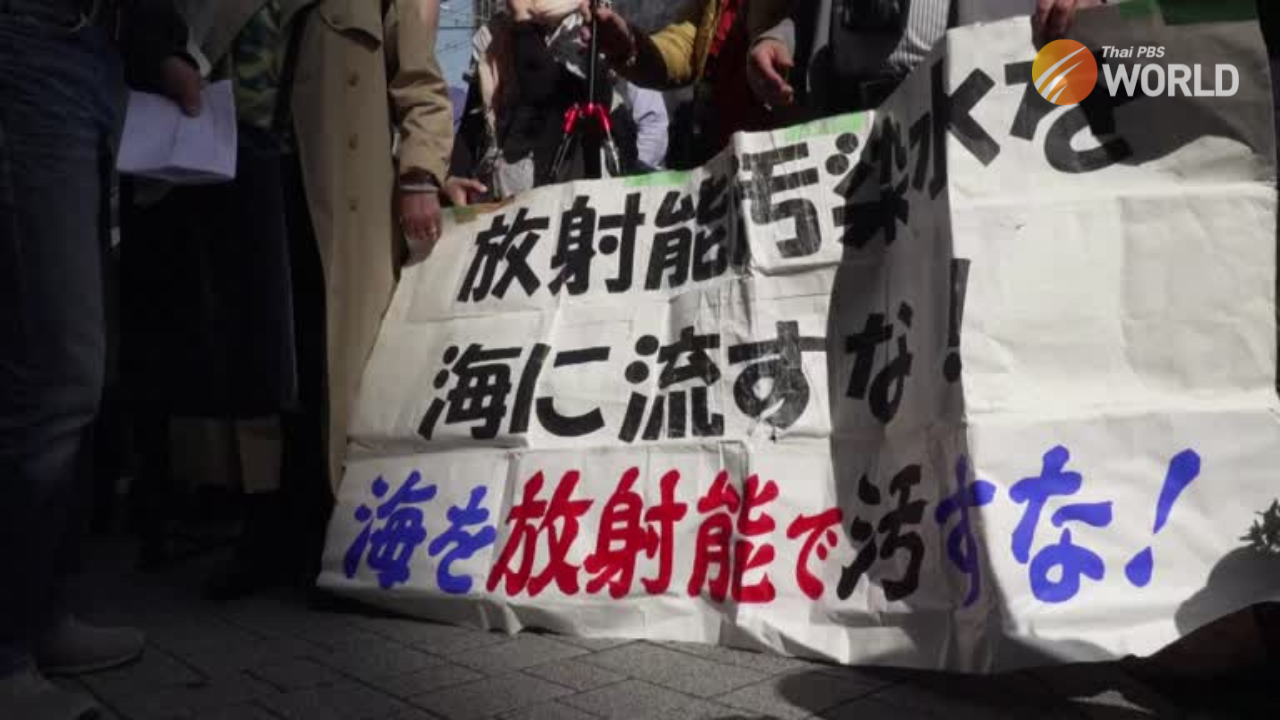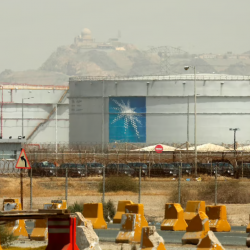Japanese people rally to protest against plan for radioactive water discharge

The Japanese government and Tokyo Electric Power are facing angry backlash among the public for their radioactive wastewater discharge plan, as people in Tokyo rallied on Saturday for a large-scale protest.
On March 11, 2011, an earthquake off Japan’s northeastern coast triggered an ensuing tsunami that crashed into the Fukushima Daiichi nuclear plant and melted three of its six nuclear reactors. As the worst nuclear disaster since the 1986 Chernobyl nuclear disaster, it forced more than 160,000 people to evacuate from the region, and about 33,000 of them are still unable to return home.
The Japanese government announced in January that it would release radioactive wastewater from the wrecked nuclear power plant into the Pacific Ocean in spring or summer this year.
In Tokyo, people held up slogans and gathered in front of Tokyo Electric Power Company to protest against the release plan of wastewater from the Fukushima Daiichi nuclear power plant.
“I firmly oppose the plan to discharge nuclear-contaminated water into the sea, and I oppose it from the bottom of my heart. This is something that should never be done. Not only will it confuse the Japanese people, but it will cause trouble for the whole world. Radioactive substances will spread all over the world and can be absorbed by fish and accumulate in the body. People‘s consumption of such fish and aquatic products will form a very terrible vicious circle,” said Tomoko Ito, a protester.
“It’s absolutely unforgivable to decide to discharge the wastewater into the sea without any communication with the local residents before making the decision. Everyone has been against it. The Japanese government has not fully listened to the fishermen’s voices, and has always been like this, ignoring the voice of the people,” said Kiuchi Atsuko, another protester.
In addition to local residents in Tokyo, people from Fukushima Prefecture also came to the capital to participate in the protest. They believe that the reason given by the Japanese government for discharging nuclear-contaminated water into the sea is untenable, and that the issue should be handled with caution.
“Now that nuclear-contaminated water has been stored in storage tanks, it is fine to continue to store it, and there is also land for additional storage tanks. Obviously there’s a storage method, but stating that there is not enough land is not a reason to discharge the water into the sea,” said Kamoshita Yuya.
Moreover, members of Ibaraki Prefectural Assembly also took to the streets to protest in Tokyo, saying that the discharge of nuclear-contaminated water into the sea is not just a problem that is plaguing people in Fukushima, and it will have a huge impact on the lives of residents in the surrounding areas once the contaminated water is released into the sea.
“I live in Ibaraki Prefecture, which is a neighboring prefecture of Fukushima. If nuclear-contaminated water is discharged into the sea, it will have an impact on our prefecture’s fishery, tourism, and agriculture. In order for the people in my hometown to live and work with peace of mind, I firmly oppose the release of nuclear contaminated water into the sea,” said Jyunnyiti Tamatukuri.
In the past few days, residents in Fukushima Prefecture, Saitama Prefecture and many other places have also taken part in protests against the discharge of nuclear-contaminated water.






